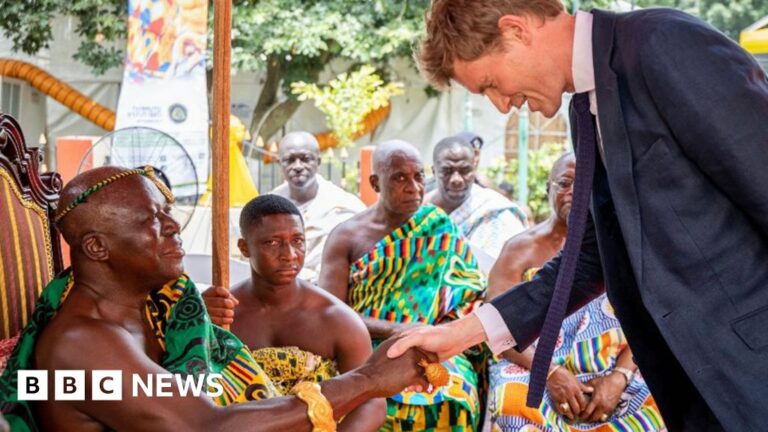Famend Ghanaian movie producer, Nii Kwate Owoo, made headlines throughout an awards ceremony in Kumasi on the first of Might. Amidst the glitz and glamour, Owoo’s highlight was on a grievance far past the cinematic world—his critique of the British Museum’s infamous fame for retaining African artifacts. This accusation is not novel, but coming from Owoo, it reinforces a dialog that is important and overdue.
Owoo’s comparability of the British to an armed robber—cruel and exploitative—paints a vivid image of the historic injustices endured by many African nations. “An armed robber walks into your home, kills your loved ones, takes your valuables, after which affords to mortgage these very valuables again,” Owoo remarked, expressing disdain for the British Museum’s restitution phrases. This metaphor deeply resonates inside a society nonetheless striving for the return of its cherished heritage.
Mr. Agyeman-Dua, sharing a private connection to the colonial atrocities via his great-grandfather’s exile amid the Anglo-Asante wars, acknowledges this ache. But, he means that looking for an amicable decision is the Asante folks’s most popular course. This angle highlights the complexity of navigating via a previous marked by plunder and cultural disenfranchisement towards a way forward for reconciliation and understanding.
The talk across the restitution of stolen artifacts illuminates the broader challenge of colonial exploitation, paying homage to the sacking of the King’s Palace in Benin Metropolis, 1897. This occasion led to the looting of the Benin bronzes, an assortment of brass castings and ivory carvings which have turn out to be symbols of the battle in opposition to cultural appropriation and for the repatriation of looted antiquities housed in Western museums.
Nigeria’s marketing campaign to reclaim the Benin bronzes has been partially victorious. In an historic transfer in 2022, Germany commenced the method of returning about 1,000 artifacts, with German Overseas Minister Annalena Berbock personally overseeing the handover of twenty-two important cultural items to the Nigerian authorities in Abuja. Describing the gesture as “a step lengthy overdue,” Berbock’s acknowledgment is a beacon of hope for a lot of advocating for the return of their cultural heritage.
By these reflective insights, it turns into evident that the dialog across the repatriation of African artifacts transcends mere diplomatic exchanges. It’s a profound journey in the direction of therapeutic historic wounds, reclaiming stolen legacies, and preserving cultural heritage for future generations. The worldwide group’s position in facilitating this restitution can’t be understated, marking a pivotal chapter within the quest for justice and reconciliation.
